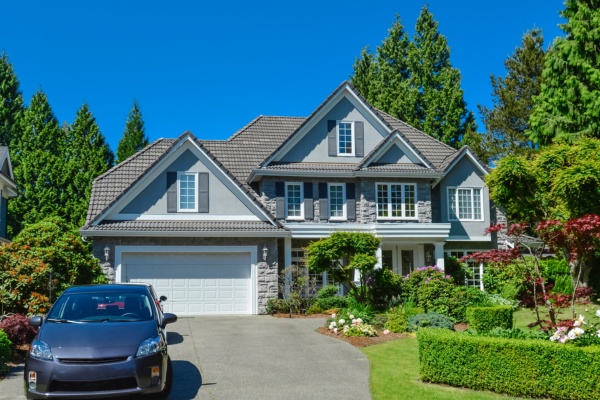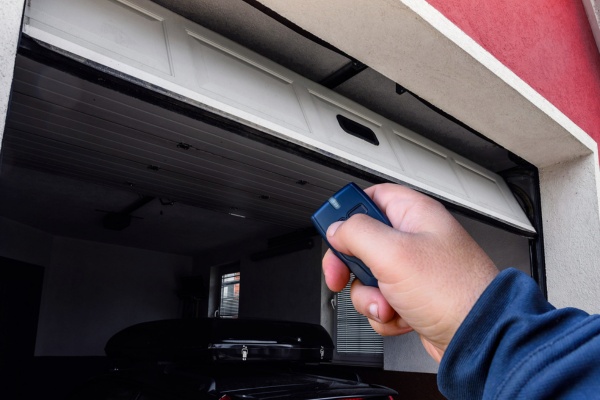Is your garage door creaking, sticking, or refusing to open? Don't let a malfunctioning garage door compromise your home's security and curb appeal. This comprehensive guide covers everything you need to know about garage door repair, installation, maintenance, and the various options available to keep your garage functioning smoothly for years to come. Whether you're a DIY enthusiast or prefer professional help, we've got you covered!
Introduction to Garage Door Repair
A malfunctioning garage door can be more than just an inconvenience; it can pose a security risk and detract from your home's overall value. Understanding the common problems, repair options, and preventative maintenance is crucial for ensuring your garage door operates efficiently and safely. This section will equip you with the knowledge to tackle minor issues and determine when professional assistance is necessary. Addressing garage door issues promptly helps prevent further damage and costly repairs down the line, saving you money on garage door maintenance and energy efficiency improvements. Regular inspections, lubrication, and addressing small problems early can significantly extend the lifespan of your garage door system.
Types of Garage Doors
Choosing the right garage door involves considering aesthetics, functionality, and budget. Several types cater to various needs and preferences.
Overhead Doors
Overhead doors are the most common type, further categorized into sectional, roll-up, and carriage house styles. Sectional doors consist of multiple panels that move upwards and store under the ceiling. Roll-up doors, often found in commercial settings, wind upwards into a cylinder. Carriage house doors mimic the look of traditional carriage doors, adding a touch of elegance to any home. These varieties offer diverse options in materials, insulation levels, and design, allowing you to find the perfect fit for your home. The choice between these types significantly impacts both the aesthetic appeal and functionality of your garage.
Materials Used
The material of your garage door impacts its durability, insulation, and maintenance requirements. Popular choices include steel, wood, aluminum, fiberglass, and vinyl. Steel doors are strong, affordable, and require minimal maintenance. Wood doors offer a classic look but demand regular maintenance to prevent rot and damage. Aluminum doors are lightweight and resistant to corrosion. Fiberglass doors are durable and offer good insulation. Vinyl doors are budget-friendly and low-maintenance. The material's impact on your garage door's overall performance and long-term cost-effectiveness should be a key factor in your decision. Choosing the right material is crucial for both aesthetics and functionality.
Garage Door Installation
Installing a new garage door can be a rewarding DIY project or a job best left to professionals.
Professional vs. DIY Installation
While DIY installation can save money, it requires specific skills and tools. Professional installation ensures proper functionality, safety, and adherence to building codes. Factors to consider when deciding include your skill level, the complexity of the installation, and the warranty implications. A professional installer guarantees a safe and efficient operation, while a DIY approach may introduce risks and potentially void warranties if incorrectly executed. Weighing the cost and potential risks is crucial before undertaking a DIY project.
Installation Costs
Installation costs vary based on the door type, size, materials, and labor rates. Factors impacting overall cost include the type of door chosen, its size and weight, the complexity of the installation (e.g., electrical work for an automatic opener), and the geographic location which dictates labor rates. Accurate estimates should detail labor costs, material costs (door, opener, tracks, etc.), and permit fees (if required) for transparency and budgeting. Securing multiple quotes from reputable installers is recommended for comparison and to determine the most competitive pricing.
Common Garage Door Problems
Identifying and addressing common issues prevents escalation and costly repairs.
Identifying Issues
Common problems include malfunctioning openers, broken springs, damaged tracks, and binding rollers. Recognizing these issues early can help avoid more extensive and expensive repairs. Observing symptoms such as slow opening/closing speeds, unusual noises, or difficulty in operation allows for prompt attention and potentially prevents damage to other components of the system. Understanding the root cause is crucial to determine the most effective solution.
Repair Options
Repair options range from minor adjustments to complete replacements. Minor repairs, such as lubrication or adjusting tracks, can often be handled DIY. However, more complex problems, such as broken springs or motor issues, require professional intervention. Emergency services are available for immediate assistance in urgent situations. Routine maintenance services should be scheduled to prevent major issues and prolong the lifespan of your garage door. The type and urgency of the repair dictate whether a DIY approach or professional service is most appropriate.
Maintenance Tips for Garage Doors
Regular maintenance prevents costly repairs and ensures smooth operation.


Routine Maintenance
Lubricating moving parts, checking springs and cables, and inspecting the tracks for damage are crucial steps. A simple annual inspection and basic lubrication dramatically reduce the risk of major problems and component failures. Regular maintenance minimizes the likelihood of unexpected breakdowns and extends the life of your garage door system, ultimately reducing long-term costs. By identifying small issues early, you prevent them from escalating into larger, more costly problems.
Upgrading Your Garage Door
Upgrading to a more energy-efficient or automated system can enhance convenience and safety. Consider upgrading to a modern, insulated door to significantly reduce energy bills and improve your home’s comfort. Adding automation features like smart garage door technology enhances security and adds convenience through smartphone control and monitoring capabilities. Exploring these upgrades can significantly increase your home's value and improve its security features.
FAQs About Garage Doors
Addressing frequently asked questions offers clarity and peace of mind.
- What should I do if my garage door won’t open? First, check the power supply and ensure the opener is functioning correctly. If the problem persists, consult a professional for assistance. How often should I maintain my garage door? Routine maintenance, including lubrication and inspection, should be performed at least once a year. What is the average cost of garage door installation? Costs vary significantly depending on factors like door type, size, materials, and labor. Obtain multiple quotes for accurate budgeting. Are insulated garage doors worth it? Yes, insulated doors improve energy efficiency, reducing heating and cooling costs and improving comfort. How can I make my garage door more secure? Upgrade to a robust door, install a strong opener with security features, and consider adding a security system for enhanced protection.
Conclusion
A well-maintained garage door enhances your home's security, curb appeal, and energy efficiency. Whether you're planning a repair, installation, or simply preventative maintenance, understanding the http://franciscoitsk833.raidersfanteamshop.com/navigating-edmonton-s-healthcare-landscape-your-2025-guide-to-hospitals options available empowers you to make informed choices. By addressing any issues promptly and engaging professionals when needed, you'll ensure your garage door operates smoothly and safely for years to come. Contact us today to schedule a consultation and let us help you secure your home with a reliable and efficient garage door system.